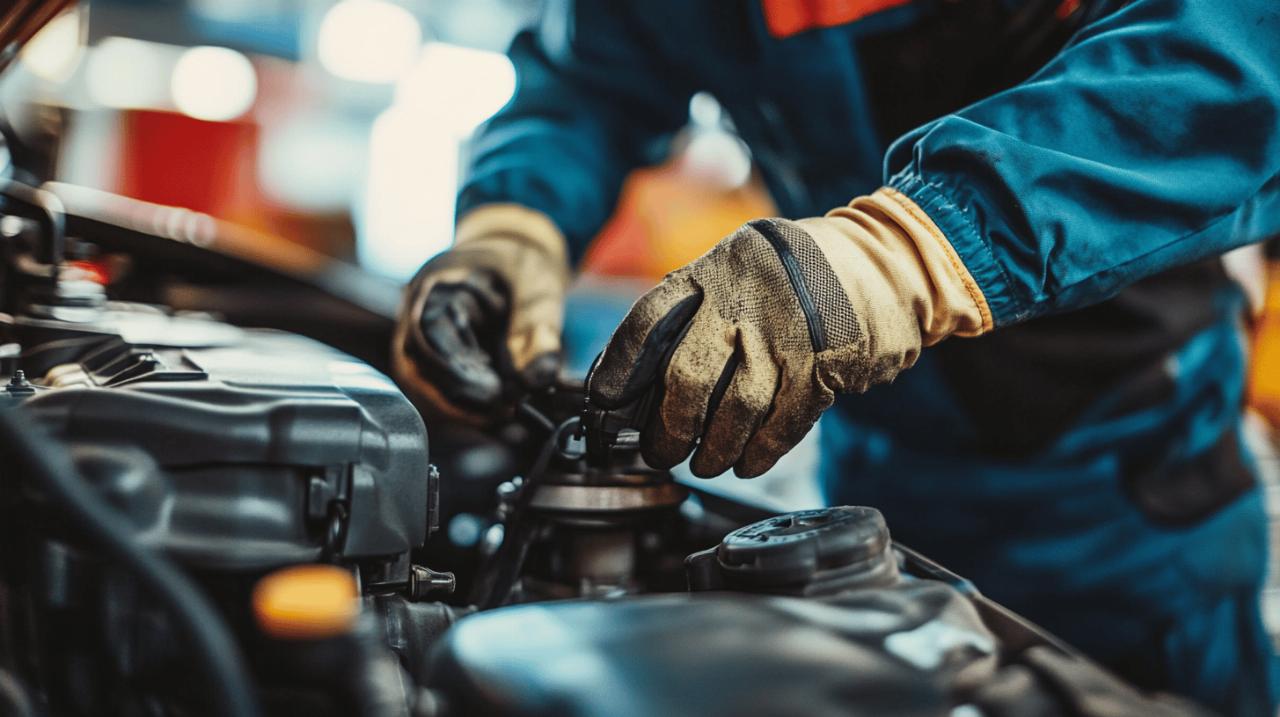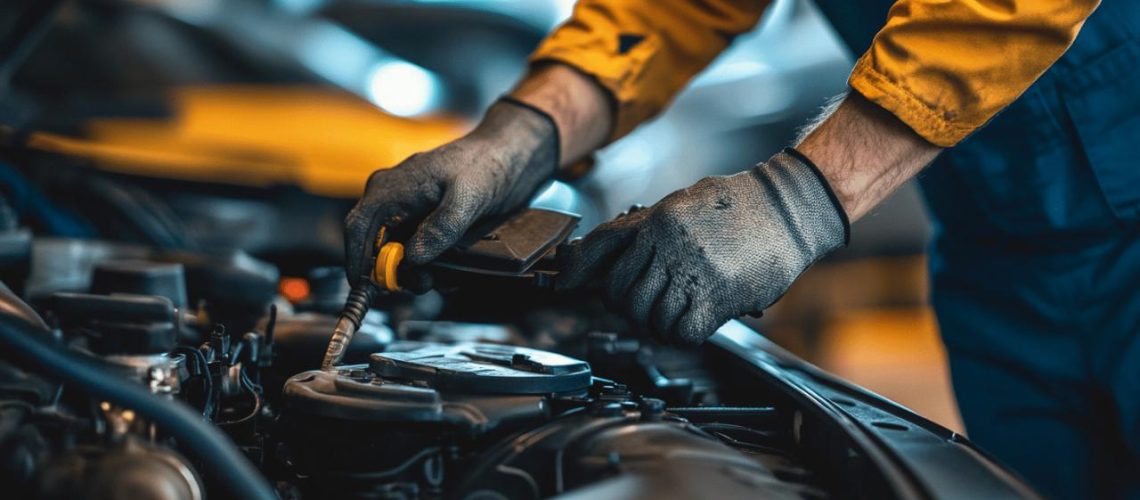Keeping your vehicle in top condition isn’t just about avoiding breakdowns—it’s about safety, efficiency, and protecting your investment. With proper maintenance, your car can perform optimally for years to come, saving you money and hassle in the long run. This comprehensive guide will walk you through essential maintenance practices that every vehicle owner should know.
Regular engine care fundamentals
Your engine is the heart of your vehicle, and caring for it properly is paramount to maintaining performance. Regular engine maintenance not only extends your car’s lifespan but also ensures you’re not wasting fuel or compromising safety. Many automotive enthusiasts find valuable information about engine care on https://www.autoregional24.de/, a trusted resource for vehicle maintenance tips and automotive news.
Understanding your service schedule
Following your manufacturer’s service schedule is crucial for optimal vehicle performance. Most vehicles require servicing every 12,000 miles or 12 months, whichever comes first. This regular maintenance helps identify potential issues before they become serious problems. Your service manual outlines specific requirements for your vehicle model, but general guidelines suggest checking engine components monthly and conducting more thorough inspections quarterly.
Key components that need routine attention
Several engine components require regular monitoring. Your air filter needs replacement every few years to prevent dust buildup that can affect engine performance. The exhaust system should be checked for leaks that could compromise emissions and efficiency. Engine belts and hoses deteriorate over time and should be inspected for cracks or wear. Additionally, your car battery typically needs replacement every three years, with more frequent checks if your vehicle isn’t used regularly.
Tyre Management for Safety and Efficiency
Proper tyre maintenance is essential for both safety and fuel economy. Well-maintained tyres provide better grip, shorter braking distances, and improved handling, especially in adverse weather conditions.
Proper pressure checks and adjustments
Tyre pressure should be checked monthly when tyres are cold. Incorrect pressure leads to uneven wear, reduced fuel efficiency, and potentially dangerous handling characteristics. Your vehicle manual specifies the recommended pressure for your specific model. Remember that pressure requirements may differ between front and rear tyres, and adjustments might be necessary when carrying heavy loads or during significant temperature changes between seasons.
Monitoring tread wear and rotation patterns
The legal minimum tread depth in the UK is 1.6mm across the central three-quarters of the tyre. A simple test involves inserting a 20p coin into the tread; if the outer band of the coin is visible, your tyres might be approaching the legal limit. Rotating your tyres annually helps ensure even wear, extending their lifespan. Watch for signs of uneven wear, which might indicate alignment or suspension issues that require professional attention.
Vital fluid checks and replacements
Fluids are the lifeblood of your vehicle, and maintaining proper levels is essential for optimal performance and longevity of various systems. 
Engine oil quality and change intervals
Engine oil should be checked every few weeks using the dipstick, ensuring the level sits between the minimum and maximum markers. The frequency of oil changes depends on your driving habits and vehicle age. For short trips under 10 miles, consider changing oil every 1,000 miles. Older vehicles typically need changes every 3,000 miles, while most car manuals recommend intervals of 5,000-7,500 miles. High-performance vehicles often benefit from synthetic oil, which can extend intervals to 10,000-15,000 miles while providing superior protection.
Other critical fluids your vehicle needs
Beyond engine oil, several other fluids require regular monitoring. Coolant helps prevent engine overheating and should be maintained year-round, with special attention during summer months. Brake fluid is essential for safe stopping power, while transmission fluid ensures smooth gear changes. Windscreen wash is not just a convenience but a legal requirement that improves visibility in adverse conditions. When topping up these fluids, use manufacturer-recommended products rather than tap water, which can damage systems or reduce effectiveness.
Identifying warning signs early
Recognizing potential issues before they escalate can save significant time and money. Learning to interpret your vehicle’s signals is an important skill for every driver.
Unusual noises and what they mean
Strange sounds often provide early warnings of developing problems. Grinding noises when braking typically indicate worn brake pads, while squealing under the bonnet might suggest a loose or worn belt. Knocking or ticking from the engine could signal oil pressure problems or internal engine wear. Rumbling or humming noises might point to wheel bearing issues or tyre problems. Addressing these sounds promptly can prevent more serious damage and costly repairs.
Dashboard indicators and their significance
Modern vehicles communicate through dashboard warning lights that should never be ignored. The check engine light may indicate various issues from minor sensor malfunctions to serious engine problems. Other critical indicators include the oil pressure warning, battery alert, brake system warning, and temperature gauge. Understanding what these lights mean allows you to take appropriate action, whether that involves immediate attention or scheduling a diagnostic check.
Preventative maintenance strategies
Developing a proactive approach to vehicle maintenance helps avoid unexpected breakdowns and extends your car’s useful life.
Building a Relationship with a Trustworthy Garage
Finding a reliable service provider is invaluable for long-term vehicle care. Look for garages with certified technicians, transparent pricing, and positive reviews. Established service centres often have experience with specific makes and models, providing tailored maintenance advice. Regular visits to the same garage allow technicians to become familiar with your vehicle’s history and specific needs, leading to more accurate diagnoses and appropriate service recommendations.
Diy maintenance tasks for every driver
Several maintenance tasks can be performed without special tools or expertise. Checking fluid levels, inspecting tyres, testing lights and indicators, and examining wipers are all simple procedures most owners can handle. Keeping the vehicle clean helps prevent premature rust, while monitoring fuel consumption can alert you to developing efficiency issues. For those interested in learning more, automotive websites like Autoregional24 offer guides on basic maintenance procedures suitable for beginners, helping you become more confident in caring for your vehicle.

